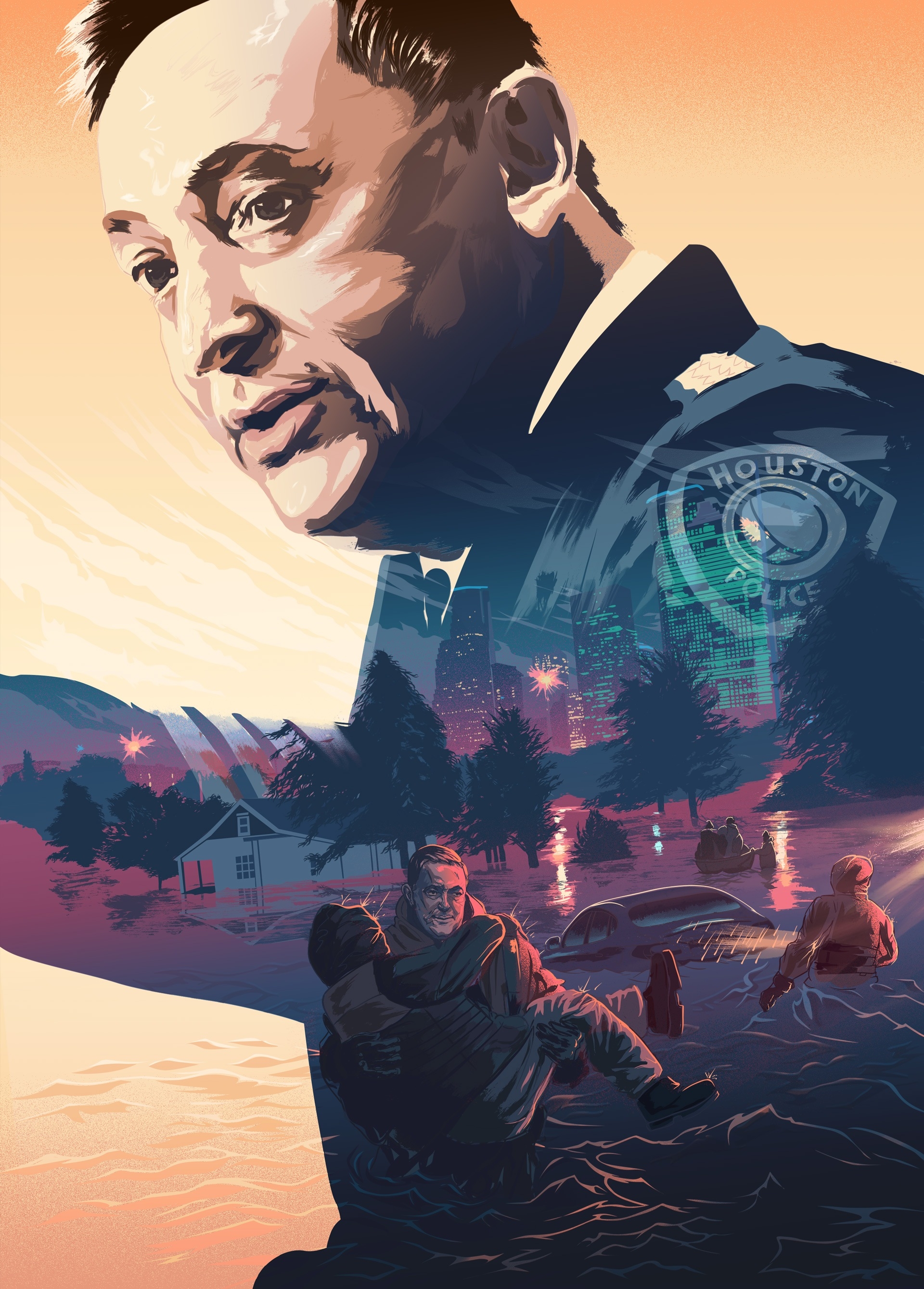Houston Police Chief Art Acevedo ’05 stood with strength and calm before hundreds of his officers in August. In a few days, Hurricane Harvey would make landfall in Texas, bringing what Acevedo described as destruction of “biblical proportions.”
He urged officers to pack extra clothes. He told them they probably would not be going home for a while. And he prepared them to be under the world’s microscope.
“Your career and the success of this organization is going to be defined by how we respond to what’s coming our way,” Acevedo told his team. “Our actions will be studied and talked about for a generation to come.”
The hurricane reached Texas on Aug. 24, taking dozens of lives and becoming the costliest natural disaster in U.S. history. That part of the story has been well documented.
But Acevedo said there is another side to the tale — one in which his officers and the city shined in the face of disaster. For six days, officers under Acevedo’s leadership slept on cots, took showers, and ate meals in police stations across Houston. Nearly 5,200 sworn officers and several hundred civilian staff continued to serve the community throughout the storm, even as their own homes were being washed away. No task was beneath anyone.
Officers cooked for co-workers. Lieutenants cleaned bathrooms. Staff washed clothes.
Instead of stress, Acevedo saw unflagging heroism from officers who rescued more than 6,500 people as the hurricane transformed the city into a series of islands.
Throughout the storm, Acevedo drew upon the lessons he learned from his University of La Verne public administration bachelor’s degree program: the importance of earning, keeping, and building trust.
Dr. Matthew Witt, professor of public administration, said managing a crisis means paying attention to good will and communicating to employees that obligations are reciprocal, something Acevedo does well.
“Great leaders have an instinct for cultivating this process,” he said. “They know that strength is a shared asset that originates in good will. The more it is given, the more it returns. Art exemplifies the kind of leadership we seek to cultivate at the University of La Verne.”
Acevedo, just nine months into his position as chief at the time of the disaster, had invested so much time in emotional capital that his officers deeply respected him as a leader. He spent those months going on regular patrols with officers and getting to know them on a personal level.
“If you demonstrate that you’re willing to get dirty with them and take risks with them, regardless of job title, they will walk through a wall of fire for you,” Acevedo said.
Or, perhaps, wade through a torrent of water. Acevedo joined about 15 homicide detectives who drove out into the pouring rain to save lives. The chief found himself in waist-deep floodwater in Houston’s Greenspoint Bayou, rescuing stranded residents.
Acevedo, who did not sleep much for more than two weeks, finally collapsed after returning home on Sept. 13 following the funeral of Sgt. Steve Perez, one of his officers who died in the hurricane.
The moment of rest was well earned.
“I cannot begin to express the sense of pride I had from watching the collective spirit of this organization,” he said. “Everybody did whatever it took to get it done.”
